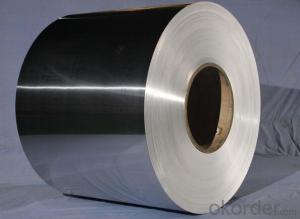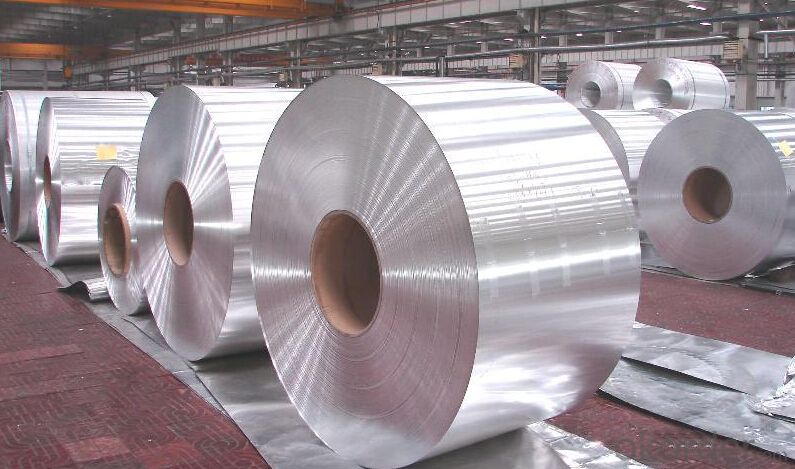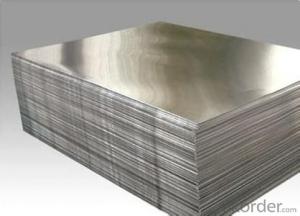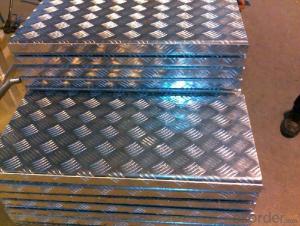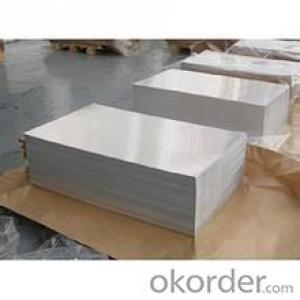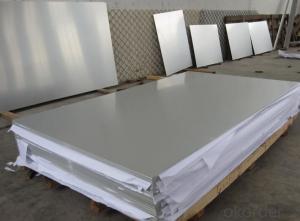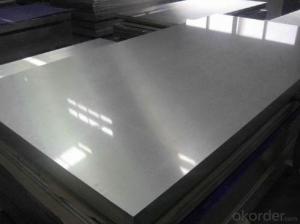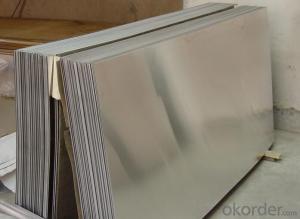Mill Finished Aluminum Strip for Engraving Sheets
- Loading Port:
- Shanghai
- Payment Terms:
- TT OR LC
- Min Order Qty:
- 5 m.t.
- Supply Capability:
- 600 m.t./month
OKorder Service Pledge
OKorder Financial Service
You Might Also Like
Specification
Temper: h14,h16,h18,h22,h24,h26,h32,o/f
Thickness: o.o3mm-3.0mm
Width: 30mm-1700mm
Coating: pe(polyester),pvdf,epoxy
Painting thickness: standard 16-25 mic, max 40 mic
Color: according to ral colors or customer's samples
Packaging & Delivery
| Packaging Details: | Coil ID :508MM Coil Weight : about 2.5 tons or as per customers requirement Packing ; In Export Sea worhty wooden pallets Eye to wall or Eye to Sky One container can be loaded about 20 mts |
| Delivery Detail: | within 25 days after receiving L/C deposit |
lloy | Si | Fe | Cu | Mn | Mg | Cr | Zn | Ti | Other | ||
Single | Total | ||||||||||
1050 | 0.25 | 0.4 | 0.05 | 0.05 | 0.05 | _ | 0.05 | 0.03 | 0.03 | _ | |
1060 | 0.25 | 0.35 | 0.05 | 0.03 | 0.03 | _ | 0.05 | 0.03 | 0.03 | _ | |
1070 | 0.2 | 0.25 | 0.04 | 0.03 | 0.03 | 0.04 | 0.03 | 0.03 | |||
1100 | Si+Fe:0.95 | 0.05~0.40 | 0.05 | _ | _ | 0.1 | _ | 0.05 | 0.15 | ||
1200 | Si+Fe:1.00 | 0.05 | 0.05 | _ | 0.1 | 0.05 | 0.05 | 0.15 | |||
3003 | 0.6 | 0.7 | 0.05~0.20 | 1.0~1.5 | _ | _ | 0.1 | _ | 0.05 | 0.15 | |
3004 | 0.3 | 0.7 | 0.25 | 1.0~1.5 | 0.8~1.3 | _ | 0.25 | _ | 0.05 | 0.15 | |
3005 | 0.6 | 0.7 | 0.3 | 1.0~1.5 | 0.20~0.6 | 0.1 | 0.25 | 0.1 | 0.05 | 0.15 | |
3105 | 0.6 | 0.7 | 0.3 | 0.30~0.8 | 0.20~0.8 | 0.2 | 0.4 | 0.1 | 0.05 | 0.15 | |
5005 | 0.3 | 0.7 | 0.2 | 0.2 | 0.50~1.1 | 0.1 | 0.25 | _ | 0.05 | 0.15 | |
5052 | 0.25 | 0.4 | 0.1 | 0.1 | 2.2~2.8 | 0.15~0.35 | 0.1 | _ | 0.05 | 0.15 | |
5083 | 0.4 | 0.4 | 0.1 | 0.40~1.0 | 4.0~4.9 | 0.05~0.25 | 0.25 | 0.15 | 0.05 | 0.15 | |
5086 | 0.4 | 0.5 | 0.1 | 0.20~0.7 | 3.5~4.5 | 0.05~0.25 | 0.25 | 0.15 | 0.05 | 0.15 | |
6061 | 0.4~0.8 | 0.7 | 0.15~0.40 | 0.15 | 0.80~1.20 | 0.04~0.35 | 0.25 | 0.15 | 0.05 | 0.15 | |
6063 | 0.2~0.6 | 0.35 | 0.1 | 0.1 | 0.45~0.90 | 0.1 | 0.1 | 0.1 | 0.05 | 0.15 | |
6082 | 0.7~1.3 | 0.5 | 0.1 | 0.4~1.0 | 0.6~1.2 | 0.25 | 0.2 | 0.1 | 0.05 | 0.15 | |
8011 | 0.5~0.9 | 0.6~1.0 | 0.1 | 0.2 | 0.05 | 0.05 | 0.1 | 0.08 | 0.05 | 0.15 | |
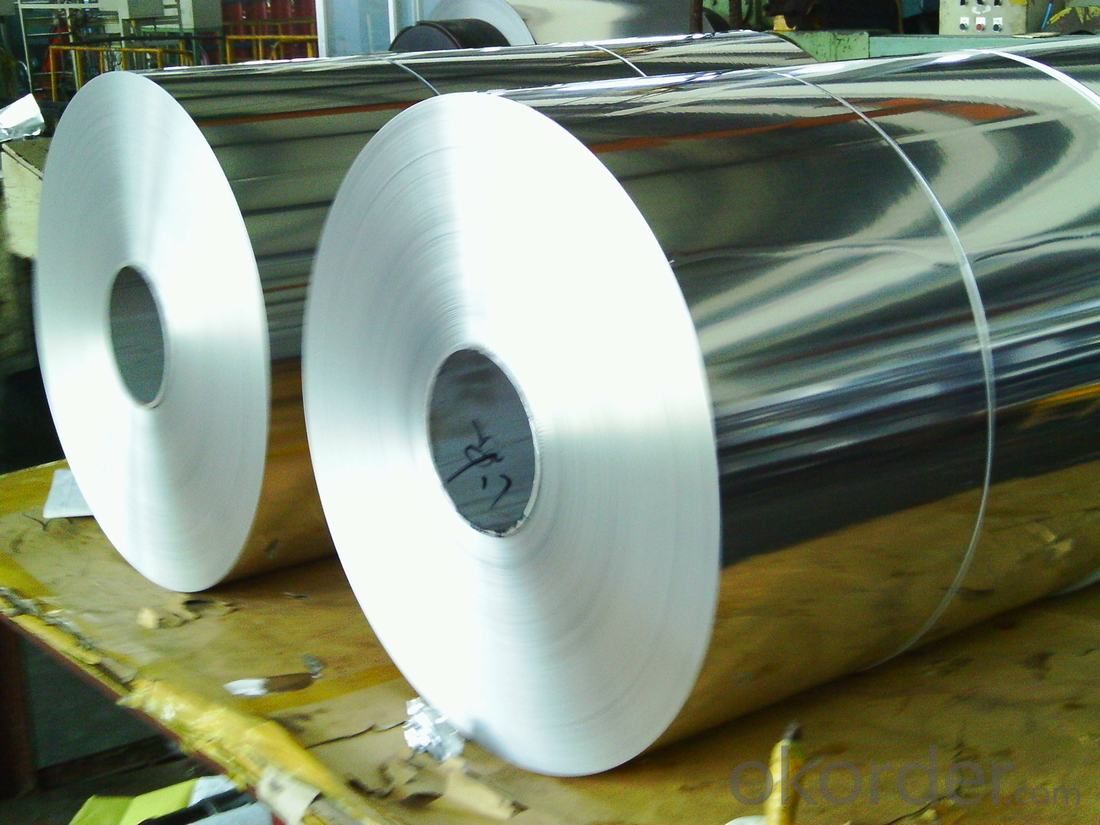
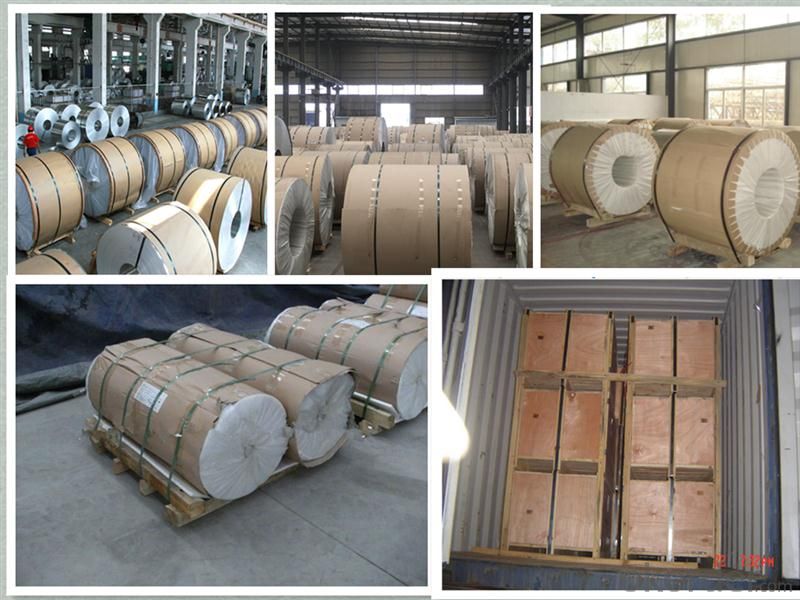
- Q: What are the different methods for perforating aluminum sheets?
- There are several methods for perforating aluminum sheets, including laser cutting, punching, drilling, and waterjet cutting. Each method has its own advantages and is chosen based on factors such as desired hole size, shape, precision, and production volume.
- Q: How many molecules are in 1 square foot of aluminum foil?
- Since aluminum foil is an amalgamation of various metals you would first need to know the full chemical breakdown in order to determine how many molecules there are in a square foot of aluminum foil. That said, if your foil was 100% aluminum, you could determine the number of AL atoms by first determining the mass of the foil and dividing by the molecular weight of AL. Multiply that by 6.022 x 10^23 to determine the number of atoms.
- Q: Can aluminum sheets be easily shaped or bent into desired forms?
- Aluminum sheets possess the advantageous characteristic of being effortlessly malleable, allowing them to be shaped or bent into desired configurations. This high malleability of aluminum ensures that it can be easily manipulated without any risk of fracturing or breaking. Moreover, its low density and impressive strength-to-weight ratio deem it an optimal selection for numerous applications that necessitate shaping or bending. Various techniques, including press-braking, roll-forming, or utilization of specialized tools like a sheet metal brake, can be employed to shape or bend aluminum sheets. The simplicity associated with shaping or bending aluminum sheets has propelled its widespread adoption in industries such as automotive, aerospace, construction, and manufacturing, where customized forms and designs are frequently required.
- Q: How does the reflective film stick to the aluminum plate?
- Put the plate clean, dry, reflective film a head from the aluminum back 2CM at the beginning attached to the aluminum plate, wrapping, pull to the front, back and side brush paper hanging tear reflective film side with the hanging brush to the aluminum paste, try to avoid bubbles.
- Q: What is the maximum temperature resistance of aluminum sheets?
- The maximum temperature resistance of aluminum sheets is typically around 600 degrees Fahrenheit (315 degrees Celsius). However, this can vary depending on various factors such as the alloy composition, thickness, and treatment of the aluminum sheets. It is always important to consult the manufacturer's specifications or obtain professional advice when considering the use of aluminum sheets in high-temperature applications.
- Q: Does anyone know why Mercury -(Thimerosal) is used in Flu Vaccinations and where Mercuryisnot used Aluminium in other vaccines ? While these are known to be toxic metals, can these cause headaches, severe hot burning heads and or Sinusitus ?
- Toxicity is about dose. The dose of mercury in the flu vaccine is minute and cannot possibly contribute to mercury poisoning. In any case, Thimerosal converts to ethylmercury in the body which is quickly broken down and excreted - unlike methylmercury which is the mercury you are thinking about. A tuna fish sandwich will give you more mercury than any vaccine. Thimerosal is a preservative basically, which is why it is added to the multi-dose vial. If you are that paranoid about it, ask for the single dose vial to be used.
- Q: What are the different methods for finishing the edges of aluminum sheets?
- Depending on the desired outcome and application, there are several approaches to finishing the edges of aluminum sheets. One commonly used method is edge trimming, where excess material is removed from the sheet's edges to achieve a smooth and straight edge. This can be accomplished using various tools like shears, saws, or routers. Another technique is edge deburring, which is employed to eliminate any sharp or rough edges left after cutting. Sanding or grinding tools are often utilized to smooth out the edges and produce a more polished finish. Moreover, edge rolling is a method that can be employed to create rolled or rounded edges on aluminum sheets. This is achieved by using a rolling machine that applies pressure to the edges, bending them into the desired shape. For a more decorative finish, edge profiling can be employed. This involves using specialized tools or machines to craft custom edge shapes or designs on the aluminum sheet. It allows for unique and aesthetically pleasing edges that enhance the overall appearance of the sheet. Lastly, edge painting or coating is an option worth considering. This process entails applying a protective or decorative paint or coating to the edges of the aluminum sheet. This not only provides a finished look but also helps protect the edges from corrosion or other damage. Ultimately, the choice of method for finishing the edges of aluminum sheets depends on factors such as the intended use, desired appearance, and specific project requirements.
- Q: This question asks for a detailed explanation of the steps involved in the manufacturing process of aluminum profiles specifically designed for use as exterior cladding.
- <p>The process for manufacturing aluminum profiles for exterior cladding involves several key steps. First, aluminum ingots are melted in a furnace. The molten aluminum is then poured into molds to create extrusion billets. These billets are heated and fed into an extrusion press where they are forced through a die with the desired profile shape. After extrusion, the profiles are cooled and then cut to length. They may undergo further processing such as anodizing, painting, or powder coating to enhance their durability and appearance. Finally, the profiles are inspected for quality, packaged, and shipped to construction sites for installation as exterior cladding.</p>
- Q: Can aluminum sheets be laminated with other materials?
- Yes, aluminum sheets can be laminated with other materials. Lamination involves bonding different layers together to create a composite material with enhanced properties and functionality. Aluminum sheets can be laminated with various materials such as polymers, fabrics, or other metals to improve their strength, durability, insulation, or aesthetic appearance. This process allows for the customization and optimization of aluminum sheets for specific applications.
- Q: What are the mechanical properties of aluminum sheets?
- Aluminum sheets possess several unique mechanical properties that make them highly desirable in various industries. Firstly, aluminum sheets have excellent strength-to-weight ratio, meaning they are lightweight yet offer exceptional strength. This property makes them ideal for applications where weight reduction is crucial, such as aerospace and automotive industries. Moreover, aluminum sheets exhibit good formability, allowing them to be easily shaped and formed into different sizes and configurations. This property makes them highly versatile and suitable for applications requiring complex shapes, such as manufacturing of cans, appliances, and architectural components. Additionally, aluminum sheets have high corrosion resistance due to the formation of a thin, protective oxide layer on their surface. This property makes them highly durable and long-lasting, making them suitable for outdoor applications or environments with high moisture or chemical exposure. Furthermore, aluminum sheets have excellent thermal conductivity, allowing them to efficiently transfer heat. This property makes them widely used in heat exchangers, cooling systems, and other applications where efficient heat dissipation is required. Lastly, aluminum sheets have good electrical conductivity, enabling them to conduct electricity effectively. This property makes them suitable for electrical enclosures, conductors, and other electrical applications. In summary, the mechanical properties of aluminum sheets include high strength-to-weight ratio, good formability, high corrosion resistance, excellent thermal conductivity, and good electrical conductivity. These properties make aluminum sheets a preferred choice for a wide range of applications across various industries.
Send your message to us
Mill Finished Aluminum Strip for Engraving Sheets
- Loading Port:
- Shanghai
- Payment Terms:
- TT OR LC
- Min Order Qty:
- 5 m.t.
- Supply Capability:
- 600 m.t./month
OKorder Service Pledge
OKorder Financial Service
Similar products
Hot products
Hot Searches
Related keywords
